New Airbnb NYC law halts new reservations as new rules require owners to register with city and hosts must live with guests in rentals
Airbnb rental options in New York City have shrunk after cumbersome new government restrictions went into effect Wednesday, essentially banning vacation rentals.
Under the latest regulations, hosts must register with the city—otherwise face a $5,000 fine—and guests must have access to the entire property.
If the rental period is less than 30 days, the host must stay with the guests. Rentals are also limited to two people, effectively preventing many families from using Airbnb in the Big Apple.
“The city is sending a clear message to millions of potential visitors, who will now have fewer accommodation options when they visit New York City: You are not welcome,” Theo Yedinsky, Airbnb’s global policy director, said in a statement.
Proponents of the bill, however, say the regulation is needed in the industry and will help address complaints arising from short-term rentals, such as noise and parties.
New York City’s restrictions on short-term rentals went into effect Wednesday and also include hosts staying with guests and rental properties required to register with the city
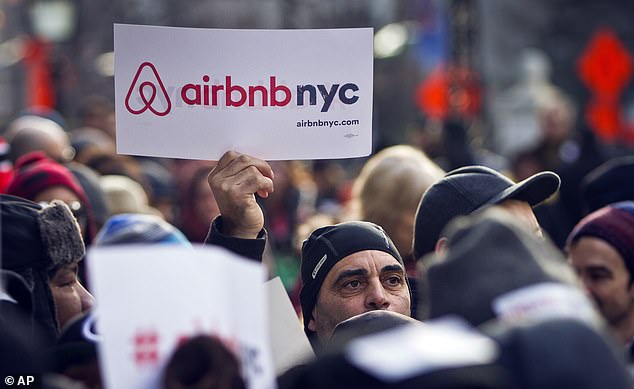
Airbnb supporters hold a rally outside City Hall in New York in 2015
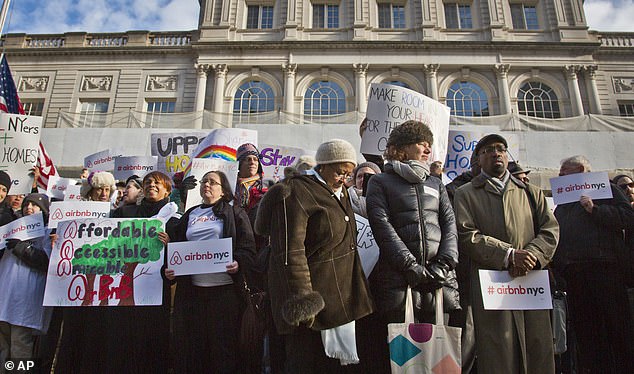
Airbnb tried to challenge the new regulations in a lawsuit, but the case was dismissed. Pictured: An Airbnb gathering outside New York City Hall in 2015
New York City regulations have taken effect and have resulted in far fewer listings in the five boroughs. Existing short-term rental reservations with check-in dates on or after Dec. 2 will be canceled and refunded, the company said.
The home-sharing giant told its hosts in New York that they should comply with the new lawotherwise their rental could be deactivated.
Airbnb estimated last month that there are about 15,000 active hosts renting out homes in the city. As of August 28, the city had received about 3,250 registration applications for the new rules, of which only 257 were approved.
The Short Term Rent Registration Act, also known as Local Act 18, was passed in January 2022. City officials said renting homes to tourists, not New Yorkers, exacerbates the city’s housing shortage and drives up the cost of living.
The city should have enforced the law in March this year, but Airbnb challenged the law in court, saying the new rules would hurt travelers looking for an affordable place to stay.
The company also said the registration system was too complex and argued that the law was effectively a ban.
That case was dismissed in August, putting the ordinance into effect.
Airbnb could lose millions of dollars in one of its largest and most profitable markets. The company said in the lawsuit that it earned $85 million in net income in 2022 in New York City.
Airbnb’s share price fell about half a percent to $142.07 on Wednesday.
The regulation could benefit the hotel industry, which competes with platforms like Airbnb. According to STRa company that analyzes hospitality data, New York City had the highest occupancy rate (85.4 percent) among other markets, rising 1.7 percent year over year, and was the only market with an average daily rate above $300.
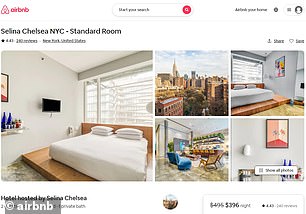
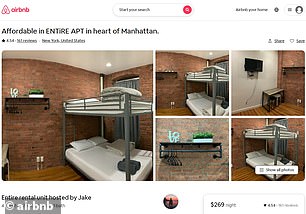
Airbnb could lose millions of dollars in one of its largest and most profitable markets. Pictured are two New York City vacation rentals that remain active on the site and appear to comply with the new regulations

NYC hosts have been asking for help as the new rules went into effect. As of August 28, the city had received about 3,250 registration applications for the new rules, of which only 257 were approved.
In a Facebook group for professional hosts on Airbnb, VRBO and Booking.com, hosts from NYC have asked for help.
“New York is basically shutting down STRs for everyone unless it takes 31 days or more for a Class B residence. Does anyone from the NYC market have any advice on how to proceed?’ asked Jamaal Johnson in the group.
While Hannah Nguyen said she has been a host for many years and is now out in the cold.
“I started Airbnb in Brooklyn, New York in 2011. I’ve been through a lot of changes with Airbnb and NYC, and as of Sept. 5, I can’t even allow Airbnb to do roomshare under the latest laws,” she wrote.
Tenants are also furious about the new regulations, which shattered many holiday dreams.
“This happened just two days ago and caused my first Airbnb in two years to be canceled less than 12 hours after I arrived. This led to a long period of time with customer service trying to arrange a new address for me,” said Facebook user Eric Cherry.
“If your Airbnb host in New York bails you out 20 days before your trip and everything else is booked or three times the price,” said X user Mariah Kenner.
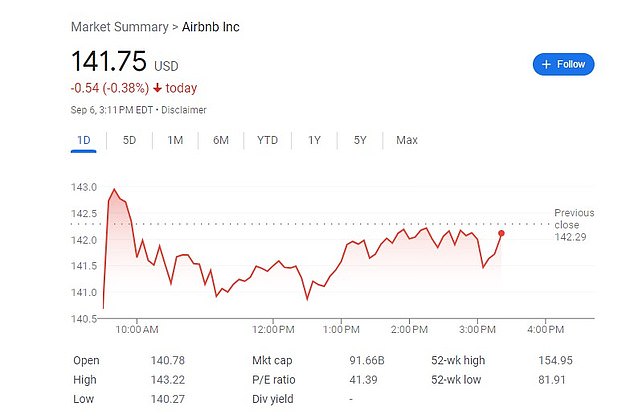
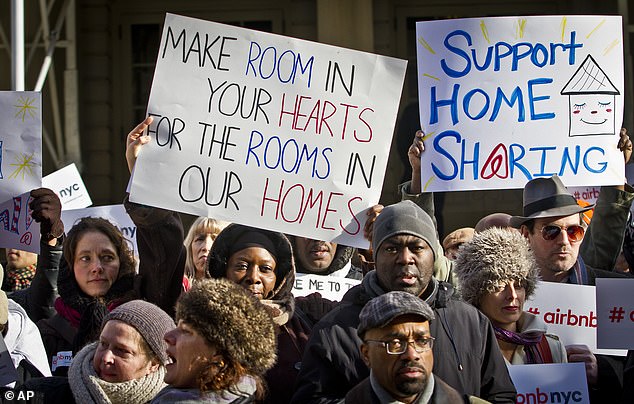
Airbnb estimated last month that there are about 15,000 active hosts renting out homes in the city
While some social media users said hotel prices have risen due to the new Airbnb rules, the leader of the city’s hotel association has disputed these claims.
“The rise in hotel prices has no relation to the law,” Vijay Dandapani, president of the Hotel Association of New York City, told Dailymail.com.
“The Hotel Association fully supports the law, which is not a law against Airbnb or any platform, but against turning houses into hotels,” he added.
Dandapani argued that the law was not unique to New York City, but existed in similar forms in all major cities such as Paris and Barcelona.
“It’s not the Hotel Association’s job to accommodate everyone who wants to come to New York,” Dandapani said.
